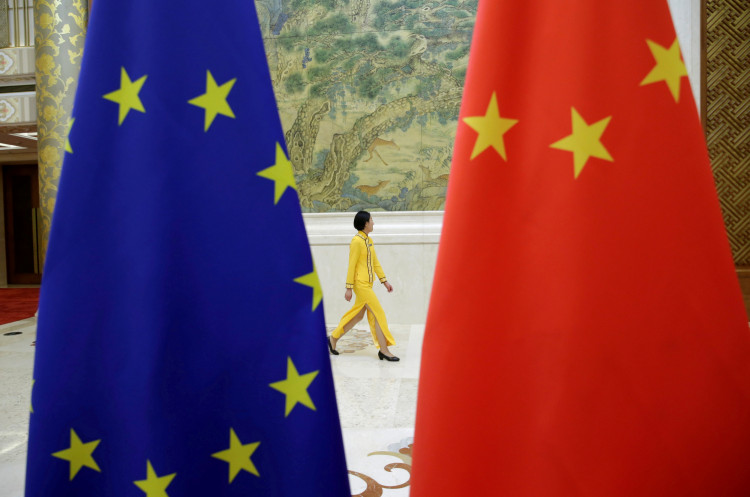As the European Union (EU) focuses on de-risking its ties with China, one of its primary trading allies, it appears that China has been ahead of the curve, having implemented de-risking strategies for decades. Jens Eskelund, the president of the European Union Chamber of Commerce in China, shed light on this during his appearance on CNBC's "Asia Squawk Box."
Eskelund emphasized that China has been proactively de-risking its economy for an extended period. He cited several initiatives that Beijing has rolled out in recent years, including the "Made in China 2025" plan, the dual circulation model, and the government's self-reliance strategies. Eskelund stressed the importance of dialogue between the two economic giants, suggesting that instead of trading accusations, both sides should engage in discussions about "sensible de-risking" to ensure the economic viability of each party.
The EU's recent investigation into Beijing's subsidies for electric vehicles (EVs) has added a layer of complexity to their relationship. This probe could lead to the imposition of punitive tariffs on vehicles that EU officials believe are being sold at unfairly low prices, thereby undermining European competitors. In response, China's commerce ministry labeled the EU's actions as "naked protectionism." The ministry also expressed its intention to safeguard the rights of Chinese companies in the EV sector.
Mao Ning, a spokesperson for the Chinese foreign ministry, echoed these sentiments, asserting Beijing's opposition to "all forms of trade protectionism." She warned that any attempts to decouple from China could have repercussions on the global auto industry's supply chains.
Valdis Dombrovskis, the executive vice-president of the European Commission and trade commissioner, highlighted the crossroads at which EU-China relations currently stand. He presented two potential paths: one that fosters open and fair trade and addresses global challenges collaboratively, and another that gradually distances the two entities.
Despite the EU's trade deficit with China expanding to $276.6 billion in 2022, up from $208.4 billion the previous year, EU officials remain optimistic. Paolo Gentiloni, the EU's economy commissioner, expressed confidence in the bloc's ability to navigate any retaliatory measures from Beijing.
Analysts believe that while China has much at stake in a potential trade war with the EU, the situation differs from its trade dynamics with the U.S. They argue that the EU remains a crucial high-income market for China, making it less likely for Beijing to impose trade restrictions on the bloc.





